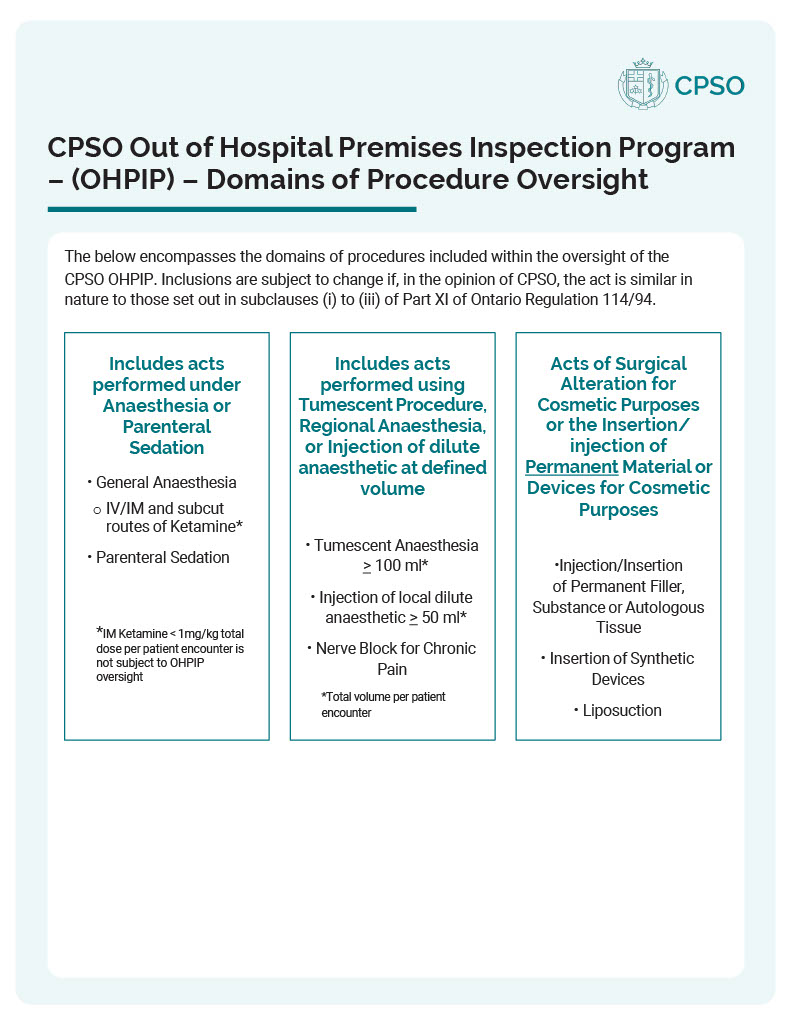Out-of-Hospital Premises Inspection Program
CPSO conducts quality assessments of all Out-of-Hospital Premises in Ontario.

Providing Notice
The regulation applies to any physician performing or intending to perform procedures in an Out-of-Hospital Premises (OHP) under the administration of:
- General anesthesia;
- Parenteral sedation (administered by intravenous, intramuscular or subcutaneous injection);
- Regional anesthesia (except for a digital nerve block); or
- A local anesthetic agent, including, but not limited to:
- any tumescent procedure involving the administration of dilute, local anesthetic;
- surgical alteration or excision of any lesions or tissue performed for cosmetic purposes;
- injection or insertion of any permanent filler, autologous tissue, synthetic device, materials or substances for cosmetic purposes;
- a nerve block solely for the treatment or management of chronic pain; or
- any act that is similar in nature to those set out above and performed for a cosmetic purpose.
Before any of these procedures can be performed at an OHP, the medical director must complete a New Premises Inspection Application form, pay the required $500 fee and pass a New Premises Inspection, which is conducted within 180 days of receiving your notice.
You do not have to notify CPSO if you are only performing the following procedures:
- Surgical alteration or excision of lesions or tissue for a clinical purpose, including examination, treatment or diagnosis of disease;
- Minor dermatological procedures including, but not limited to, the removal of skin tags, benign moles and cysts, nevi, seborrheic keratoses, fibroepithelial polyps, hemangioma and neurofibromata;
- Lasik surgeries; or
- Cosmetic procedures not involving general, regional or parenteral anesthesia including, but not limited to, temporary fillers, laser skin resurfacing, botox and sclerotherapy.


